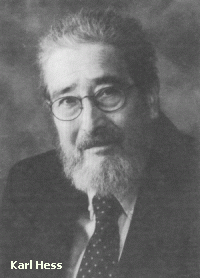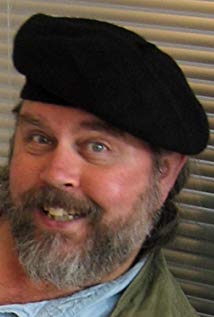|
J. Neil Schulman |
|
|
by Joseph O'Neill
On August 10 this year we lost Joseph Neil Schulman, a libertarian and science fiction icon. Neil was not a founding member of the Karl Hess Club, but he might as well have been. For years he was a strong contributor to and vociferous commentator on Club proceedings. He even continued with frequent long-distance visits after he moved to the late Art Bell's Kingdom of Nye (Area 51 adjacent, Nevada). Another popular attendee was
Neil's
mother, whom Neil had cared for faithfully in her dotage. When
Neil's decades-long friend and neighbor, our own
Samuel Edward Konkin III, died in 2004 with no nearby relatives,
Neil stepped up to the plate efficiently managing all post-mortem
affairs. Sam famously was opposed to Government-issued ID and,
accordingly, had no driver's license, Socialist Insecurity Number
(SIN), etc. Statists sometimes tell you you must have ID, otherwise,
when you die, no one can identify your body, inform your family, etc.
Well, that was no problem at all for Neil, who still got everything
squared away just fine, including getting Sam's mortal remains
repatriated to his native Alberta. Now Sam lies beside his father in
the tundra, presumably cheering on today’s Albertan Rebels from six
feet under, giving the lie to another statist myth about ID. Neil
notably also organized Sam's magnificent memorial at the Alpine
Village with a stellar cast of libertarian eulogists. Among other venues, Neil promoted
Stopping Power on the Dennis Praeger radio show -- excuse me, the
Dennis Praeger "program"! Now Praeger is the "Court Philosopher of the
Ruling Elite." I.e., simple-minded objections to the Neocon agenda are
handled by morons like Hannity; tough ones get kicked upstairs to
Praeger. But Praeger does have libertarian streaks. For example, he's
an advocate of smokers' rights and a free speech absolutist. So he is
decent and open-minded. Neil was supposed to be on Praeger for a short
segment, but Praeger was so impressed with Neil's masterful rhetoric,
he kept him on for the full hour! And afterwards… Praeger went out and
bought a gun, for the first time in his life! So, Neil accomplished
that rarest of feats -- he actually changed someone’s mind using
reason! In Stopping Power there's also a
section called "What It Takes to Get Me to Put on a Yarmulke." This is
the address Neil gave at synagogues and other Jewish gatherings on gun
rights. Again, funny and well argued. Among other things, Neil was a
great advocate of the 1943 Warsaw Ghetto Uprising and a great opponent
of the 1938 Nazi Waffengesetz, widely seen as model legislation for
later US gun control laws. Neil was a member of the late Aaron
Zelman's excellent organization: Jews for the Protection of Firearms
Ownership, which also welcomes non-Jewish members. Thus, Neil found a
way to be true to his culture that was also true to himself. Neil, heroically engaging all these
malevolent forces, proposed an "Unabridged Bill of Rights," i.e., one
that contains both the Second Amendment and all the others. He
promoted this concept to the ACLU, of which he was a card-carrying
member. He famously rewrote the Bill of Rights in today's English
composing a text resolutely true to the Founders' intent, yet
expressing our rights more forcefully, unambiguously, and with
universal clarity for everyday folks, sparing little room for Fascist
misconstrual and misrepresentation. Would that our Nation put these
rights actually into force! I asked Neil at the time how much research
he had put into that book. Characteristically for Neil, it was an
enormous amount. While I still share the consensus view that the case
against OJ was overwhelming, Neil did make a pretty good argument. In
any case, speaking up for OJ was shrewd strategy on Neil's part. The
great Brian Eno, for example, calls himself a "non-musician." Thereby,
he profiles himself whilst side-stepping comparison with thousands of
virtuosi out there. Instead of competing with a slew of anti-OJ books,
Neil wrote perhaps the only pro-OJ book, which also won him enviable
access to the OJ Defense Dream Team. Not to say Neil was not a true
believer in OJ, or whatever cause he advocated. At the next Hess meeting, I told Neil.
Instantly, he said. "Hhm, a new sport? Trap shooting of
low-orbiting satellites with hand-held missiles? I must put that into
my next novel." It was something worthy of that other Neil -- L.
Neil Smith -- and our Neil came up with it in a snap. His works are
crammed with edgy and delightful innovations of this kind. This last point was made clear to me by Roman Polanski's film The Ninth Gate. Here, Johnny Depp plays a rare books dealer hired by a wealthy client to procure a centuries-old Satanic tome. Old book experts have a webpage where they make jokes about all the errors in the movie. The Ninth Gate gets everything wrong about bookbinding. But, according to experts on the occult, it gets everything right about Satanism! So you see where Hollywood’s priorities lie. Neil knew that all too well, and the bits
about movie stars are the funniest parts of the book. My only
objection to Escape From Heaven was the scene where the talk
show host, like Our Lord, is tempted in the desert by Lucifer, who,
like in The Ninth Gate, takes feminine form. The talk show
host effortlessly parries all of Lucifer's facile arguments, which was
anti-climactic. I would have preferred something like Dostoyevsky, who
in the Brothers Karamazov rephrased Satan's arguments from the Gospels
in more powerful form. After all, it often requires penetration to
tell right from wrong, and the two may flip as we delve beneath the
surface. In Neil's defense, God might have picked a talk show host as
His campaign manager due to his skill in dismissive rhetoric. Anyway,
Escape From Heaven is marvelous and highly cinematic. I hope
someone shoots it someday. I'm no JFK worshiper but, in Neil's portrayal, we do find a leader of tremendous poise who knew how to connect with people individually and en masse, in public and private, intimately, but without losing a shred of dignity. "Profile in Silver" also has a masterful twisting and turning plot with spoken and unspoken elements beautifully effected. This is a jewel in Neil's literary crown, which has now been passed on to all of us as his enduring legacy. Thank You. |

